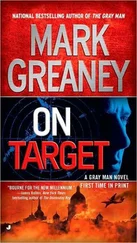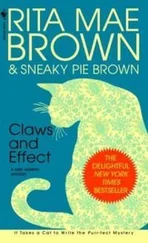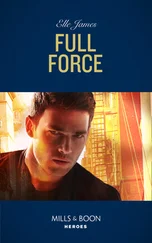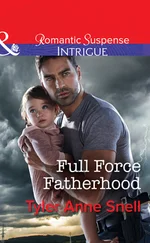In front of the presidential limo was the other Beast, and in front of that a dozen black Chevy Suburbans carrying Secret Service, White House, and Department of State personnel. Ahead of these were Mexican police cars, some dozen in all, and at the very front of the convoy, twenty-one Mexican Federal Police motorcycles rumbled through the intersections, all of which had already been blocked off with more police.
Behind the President’s vehicle came two Suburbans ferrying close protection agents, then three specially outfitted Suburbans carrying the counterassault team. These vehicles all had open back gates full of armed men scanning both sides of the road, and they had hatches on the roof they could use to stand and fire from above. A fourth counterassault vehicle carried more heavy weapons and security equipment for the SWAT officers.
After this main security contingent came the Roadrunner, the unofficial name given to the Mobile Command and Control Vehicle, a Suburban filled with high-tech communications equipment that allowed the President and his team secure comms even while driving in foreign countries.
After the Roadrunner were two white sixteen-passenger media vans, then another twelve SUVs and sedans carrying more VIPs. All of these vehicles were already full, as the press and other staff traveling with the President had deplaned before the President.
The U.S. contingent of the motorcade was thirty-five vehicles, but the Mexicans added more than eighty, most in the form of uniformed Federal Police on motorcycles.
In the lead media van, sixteen reporters from print, television, and wire services sat crammed together. In the middle of the first row behind the driver, twenty-seven-year-old CNN reporter Jill Crosby checked the service on her mobile phone. She was new to international travel, and although she’d been told she’d have no more trouble getting a signal in Mexico City than she would at the Washington Bureau where she worked, she needed to confirm it for herself.
She breathed a sigh of relief when her phone displayed four bars, a full-strength signal.
She’d never traveled with the President before and she had no plans to call anyone other than her boyfriend this afternoon, but she wanted to be ready for anything. That was her mantra, and it had gotten her this far. After all, you didn’t make it this high in CNN at such a young age, assigned to an international flight aboard Air Force One, without working your ass off and leaving nothing to chance.
—
In the backseat of the Beast, Ryan and Styles drank bottled water and discussed protocol, but only for a short time, because the President wanted to hear another of the ambassador’s old war stories. The Marine had been in Grenada, and in Panama, and he’d finished his military career fighting in the Middle East. He wasn’t one to offer up long tales about past action, especially not to the President, who had his own fascinating history that was somewhat longer than the younger ambassador’s, but Ryan had been a Marine himself, and he peppered Styles with questions about his time in the service like a fascinated college student.
—
It was 2:18 a.m. in Pyongyang, North Korea, but General Ri Tae-jin wore his full uniform, and he sat at his desk in his office in the Reconnaissance General Bureau. Across the room was a thirty-two-inch CRT television tuned to the American television news station CNN. With the general in his office was a female translator, herself in the green uniform of the Chosun Inmingun, the Korean military. She had been ordered here with no explanation of why she was to sit with the general throughout the early morning and provide running translations of U.S. television news.
Right now the station was running its noon news hour, a story about flooding along the Ohio River. The translator gave the information to Ri quickly and confidently, but other than to verify her ability as a translator, the general wasn’t interested. His mind was racing now, thinking about the importance of the next few minutes.
He had entered into this operation with doubt and anger, but as the scheme had progressed, as the pieces fell into place with the finding of the assassin in Syria, and as he’d heard reports back from his agents in Mexico City who were secretly monitoring the actions of the Maldonado cartel, he began to become cautiously optimistic about the entire enterprise.
And when the American President stole the mineral refinery equipment two days earlier, indicating to all he knew Ri’s operation to build the processing plant directly correlated with the operation to obtain ICBM technology, General Ri knew Fire Axe—his operation in Mexico City—had to succeed for his operation in Chongju to succeed.
As if by curse or by fortune, one scheme folded into the other.
For Ri to live . . . Ryan had to die.
He held a hand in the air, stopping the translator’s work in mid-sentence. Ohio could drown or wash away, Ri could not care less.
“You may pause until the important news comes on the air.”
The translator swallowed uncomfortably. “Apologies, Comrade General. How will I know what is important?”
Ri’s sad eyes blinked and brightened, and his nearly perpetual frown curved upward. “You will know.”
—
As the Beast made a left off Costa Rica onto Vidal Alcocer, Ryan waved to a small crowd behind a barricade. Most seemed happy to see him, but a few angry-looking people, young males and females, waved a banner that he was not able to read.
Ryan turned to Styles. “I bet the Maldonado killing in Acapulco gave you a few headaches.”
Styles said, “Speaking as ambassador to Mexico, I confess it was a difficult time diplomatically, at least in our dealing with the general public, since the Maldonado brothers did enjoy some popular support around portions of the western regions of the country.”
Ryan nodded.
“But if I might be allowed to speak as a Marine for a moment.”
“Please do.”
“That son of a bitch needed to go.”
Jack nodded again.
Styles leaned forward. “I understand totally if you are not at liberty to say, Mr. President. But I sure would be curious to know if we, in fact, had operators on the ground in Acapulco.”
With a dry look Ryan replied, “Can neither confirm nor deny, Ambassador.” And then he finished the line with a little wink.
Styles turned to look out the window. “You just made my day, Mr. President.”
—
Four blocks away, two men, one Mexican and in his twenties, the other Iranian and in his forties, sat at a small round table in the back corner of a Starbucks, both men leaning over a mobile phone. The older man held a white cordless telephone in his hand, but it was hidden under the table, resting on the backpack between his feet. Anyone paying attention might notice both men were perspiring, but the other patrons of the shop were engrossed in their own conversations and work.
Adel Zarif watched the video feed intently, hesitant to blink lest he miss the first limousine. Gordo moved the camera around more than Zarif would have liked, and the image shook and jerked as the crowd around the man at the barricade jostled him to get their own cameras up and into position.
But Zarif thought it was a gift from Allah that the image on Emilio’s little phone settled down and centered perfectly just as a black Suburban passed in front of the wall, and the first big black limousine passed, its Mexican hood flags whipping in the breeze.
At the back of the Starbucks, Adel Zarif muttered softly to himself, “Allahu akbar.”
At the same moment, his tablemate, the Maldonado man Emilio, simply said, “Come mierda.” Eat shit.
Читать дальше












